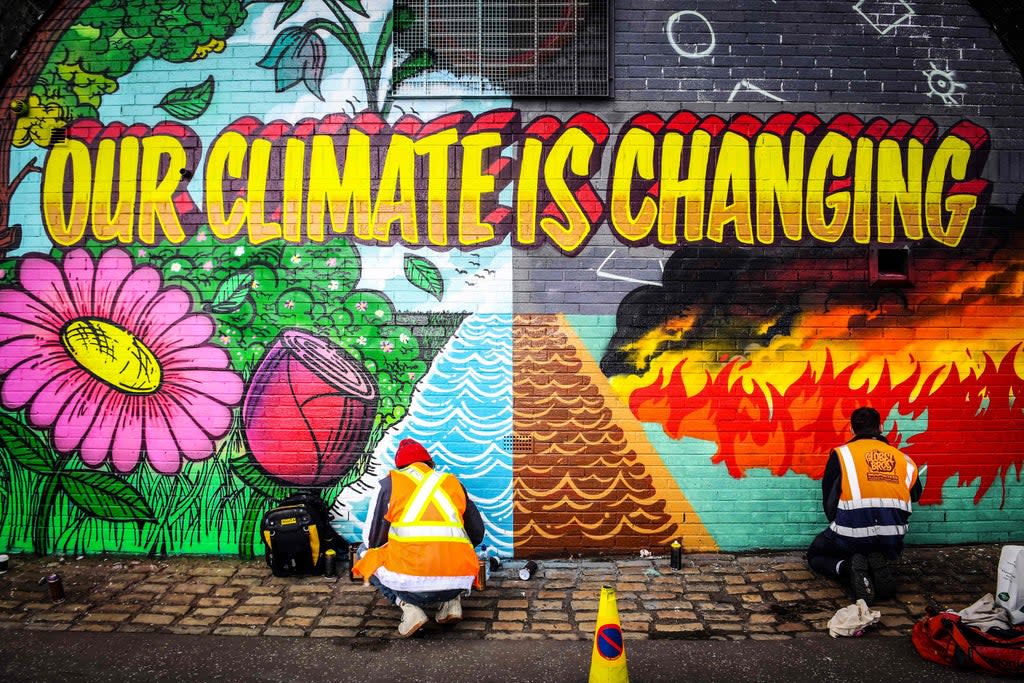No more delays – the government needs to deliver urgently on climate investment

This government has been good at setting climate targets, but incredibly weak at delivery. They have perfected the art form of climate delay, of pledging to act but just not yet. This week, we are promised this will change, with delivery plans, strategies on investment and a plan to transform our homes.
The truth about the climate transition is that if we act, we can transform our country – not just tackling the emergency as we must, but creating a fairer Britain with good jobs at decent wages, tackling fuel poverty, and providing green spaces and a decent public transport system for all. Our fundamental test, therefore, is whether what the government is putting forward amounts to a green coat of paint on an unfair, unjust Britain, or a truly transformative plan.
First, on climate investment, Rachel Reeves set the green standard in her Labour Party conference speech, with a promise of £28bn additional every year from now until 2030. This commitment is the prudent, responsible choice. Delaying action by a decade doubles the cost of transition. The Office for Budget Responsibility has shown that failing to invest is the irresponsible, reckless choice.
Delay will cost jobs as our industries fall behind in the global race. The Trade Union Congress (TUC) has warned that as many as 660,000 jobs are at risk. Take the steel industry, for example. It needs to reach near net zero by 2035, according to the Climate Change Committee. Doing so requires £6bn of transformation according to the experts. That just won’t happen unless the public sector is a proper partner, alongside the private sector. So far, the government’s clean steel fund offers just £250m, and not until later this decade. If the government is really serious, this week they will match Labour’s long-term £3bn commitment for this decisive decade.
The same goes for the gigafactories we need to build so our car manufacturers can make a new generation of electric cars here in this country. Likewise for new industries, from carbon capture to hydrogen. Unless the public sector steps up and plays its proper role in this transition, we will lose jobs and industries. If it does, we can add hundreds of thousands if not millions of well-paid and secure jobs in every region.
Despite all the talk from the government, its green recovery plans are just a fraction of those elsewhere – languishing next to last in the G7. If the government’s proposals are not backed up by a proper investment plan for the decade, they will simply not deliver – not for the climate, nor for households, workers or industry.
Second, this investment matters because it is essential to make the transition fair. We are in the midst of an energy price crisis hitting families and businesses because a decade of government failure to make the transition to zero carbon has left the country exposed and vulnerable.
One of the biggest single decisions that could make a positive difference to families across Britain is a proper, decade-long home retrofit and insulation plan, starting immediately. If anything can be done to cut bills for families, improve our energy security, reduce carbon emissions and create jobs – it is this. With the right measures, we can reduce energy demand by as much as 25 per cent and cut bills by hundreds of pounds.
The government’s record is poor, with the failed Green Deal, the fiasco of the prime minister’s flagship Green Homes Grant policy, and the scrapping of Labour’s Zero Carbon Homes Plan, which has left over 800,000 new homes built to the wrong standard in the last five years, adding £500m to family energy bills.
This week’s heat and buildings strategy must contain a house-by-house, street-by-street plan to insulate and retrofit homes. That is what Keir Starmer called for in his conference speech. A £6bn a year mission to get every home up to EPC band C, a decent standard of insulation, by 2030. If the government dodges this challenge, they will be rejecting the closest thing there is to an economic and policy no-brainer.
To keep up to speed with all the latest opinions and comment sign up to our free weekly Voices newsletter The Opinion by clicking here
Third, the government’s plan must be both comprehensive and reflect the urgency of the moment. We are likely to see promises of new nuclear power stations at least a decade hence. After years of stalled plans, we support nuclear power as part of the energy mix, but this must be one part of a detailed sector by sector net zero plan that delivers across power, transport, homes, land and industries.
What’s more, we will rightly be telling other countries coming to Cop26 in Glasgow in just two weeks time that this is the decisive decade, from now to 2030. The test of these announcements is whether we see a decisive step change in urgency from the government. We need a genuine green recovery from the pandemic, with jobs for the future and action to help families.
Much is riding on the government’s plans this week. By meeting the climate emergency, we can transform our economy and society. Climate justice and economic justice go together, but we need a government that is serious about achieving this. That is the test.
Ed Miliband is the shadow secretary of state for business, energy and industrial strategy
Read More
Sierra Nevada lakes change more in past 100 years than three millennia
How the climate crisis played a role in fueling Hurricane Ida
Against the odds: The fight to save sea turtles in Ras Baridi

